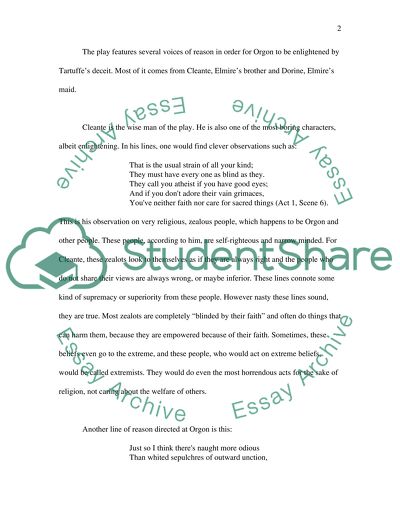Cite this document
(“The voices of reason in Tartuffe by Jean-Baptiste Poquelin Essay”, n.d.)
Retrieved from https://studentshare.org/literature/1414252-the-voices-of-reason-in-tartuffe-by-jean-baptiste-poquelin
Retrieved from https://studentshare.org/literature/1414252-the-voices-of-reason-in-tartuffe-by-jean-baptiste-poquelin
(The Voices of Reason in Tartuffe by Jean-Baptiste Poquelin Essay)
https://studentshare.org/literature/1414252-the-voices-of-reason-in-tartuffe-by-jean-baptiste-poquelin.
https://studentshare.org/literature/1414252-the-voices-of-reason-in-tartuffe-by-jean-baptiste-poquelin.
“The Voices of Reason in Tartuffe by Jean-Baptiste Poquelin Essay”, n.d. https://studentshare.org/literature/1414252-the-voices-of-reason-in-tartuffe-by-jean-baptiste-poquelin.


